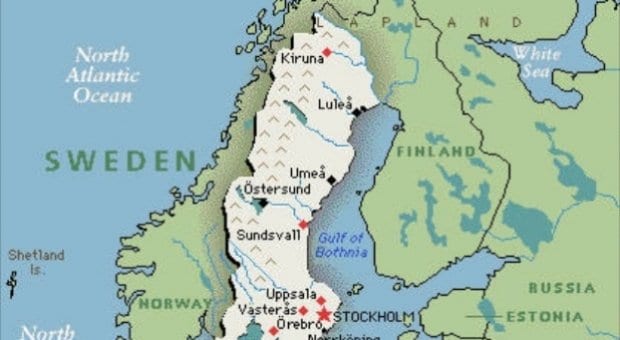Following announcements by the World Bank, Norway, the Netherlands and Denmark that they are withholding or redirecting aid to Uganda, Sweden has also said it will stop state-to-state disbursements to the African country because of its anti-gay law.
Sweden’s minister in charge of international development cooperation says her country’s aid is “not unconditional” and reiterates condemnation of the legislation that further criminalizes homosexuality, an Agence France-Presse report says. Hillevi Engström adds that Sweden will continue to fund organizations that don’t have ties to the Ugandan government.
Ugandan President Yoweri Museveni’s decision to sign the anti-gay measure into law prompted a Kampala advocacy group, Civil Society Coalition on Human Rights and Constitutional Law, to issue guidelines to its national and global partners on ways to continue their support in the wake of the law’s enactment.
While the coalition says it supports strategic aid cuts to specific sectors, it opposes what it calls “general aid cuts.”
“We DO NOT support cuts in support to NGOs and other civil society institutions that offer life saving health services or other important social services to the People of Uganda. Partners should expand investment in funding for service delivery and advocacy in defiance of the law, targeting LGBT populations, to attempt to mitigate the harmful impact this law will have on access to services, and on human rights,” the guidelines state.
The coalition also called for more foreign leaders “to say something about the Act as they have not come out strongly as it was expected.” It also appealed to celebrities to speak out against the legislation. “We need more voices that Ugandans recognize and revere socially to speak out against this Law,” the group says.
It also called on multinational corporations that do business in Uganda to “go public” about their concerns about the anti-gay law, the potential damage to their brand by continuing to operate in the African country, and the risks to the safety of their employees.
The coalition also called on its allies to organize demonstrations to protest the law in cities around the world.
It adds, “We encourage you to lobby your Government’s Immigration Services to adjust their asylum policy with regard to LGBTI persons from Uganda, Nigeria, Russia, Cameroon and other countries in which levels of state-sponsored homophobia are rapidly rising.
“We further request that you send us information on which organizations can be helpful in assisting the individuals who are at risk if the situation gets worse and they have to get out of the country and seek asylum or relocation elsewhere.”


 Why you can trust Xtra
Why you can trust Xtra


